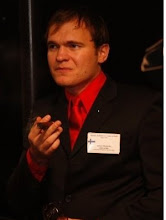Well, I’m not going to go through what caused me to write this post in the first place. Instead I’m just going to state some things that need to happen before a western country needs to be worried about it’s safety because of some “news” in Russian media.
- Russia is not a monolithic political system. There are a lot of opinions that are allowed to the mass media that not necessarily represent “the official” view of Kremlin/Putin.
- Russia, at the moment, is not a totalitarian state. It is an authoritarian state. The point of mass propaganda is not to mobilize people by saying “the West/gays/Ukraine is a threat, and we need your help to fix the world”. The point is to explain the moves that the Russian government does: “the West/gays/Ukraine are a threat, but Putin is on it. Keep calm & stay in the kitchen.”
- There is a sort of freedom of speech in Russia, but no freedom of the mass media. You may express very radical opinions as long as you don’t criticize the regime.
- Russia at the moment is an absolute monarchy. There is one Czar to rule them all. He has the power to change everything, but he does not have the time or the will to micromanage all of the things. So the low level decisions are left to the feudal lords who are loyal to the Czar, but not to each other. They have a never ending quest to distinguish themselves in the eyes of the Czar by guessing his next move or agenda. The Czar doesn't issue a strategy outlook, because most of the time he just reacts to the current events. The feudal lords tend to overdo their asskissing, because they never get punished for it. On other hand, they might get punished for not showing enough zeal.
- Sometimes Russia has organized propaganda wars on some “enemy”. Those are the cases when national TV-stations have very similar news, with very similar words and an identical content. The format is the “two minute hate” described by Orwell, but it actually takes many hours of prime time TV. The two minute hate concept can only have one current enemy and one basic enemy at the time. Right now it’s the Ukraine and US as the primus motor of everything bad. Before Ukraine the current enemy was Estonia and Georgia, but US was always the primus motor. So, as long as the propaganda machine has some other current enemy than country you live in, you’re fine. And trust me, when shit’s about to hit the fan, there’s no chance that you’ll miss it on Russian TV.
- There are a lot of negative things said about other countries on Russian TV, but the aim of those words is mostly propaganda for home audiences. 72% of Russians don’t have a passport that would allow them to travel outside the country, so they really don’t know any better than they did back in Soviet times. Sometimes the propaganda machine chooses some country to be the champion of the Russian interests, like Finland has been displayed recently. Sometimes the propaganda will just take an aim at some country with no motive besides showing home public that the West is an decadent place, like with all the child custody issues with Norway, Finland, US and France have had. These “news” are irrelevant from the viewpoint of security policy.
So, what are the conclusions we can make based on these six points? First of all, most of the garbage seen in Russian mass media is solely aimed to “inner markets” with no applications abroad. And there are three things that Russian propaganda does when you should get worried:
- Some bad things are said about your country on public TV and the narrative is repeated few days in the row. 88% of Russians rely on the TV as main news resource.
- More than one national TV-broadcaster shows pretty much the same negative story about your country as the number two evil in the world right now. Single TV channel can overdo its asskissing to the regime, but a full blown coverage is always organized from the Kremlin.
- Official spokespersons of the Kremlin confirm the “news”. Persons like the foreign minister Lavrov or Putin's spokesman Peskov use exactly the same expressions that the TV has used before, like “Kiev’s junta”. This is the most important condition. Without this, all propaganda should be assumed to be aimed at internal use.
Stay frosty, but don’t overreact.
